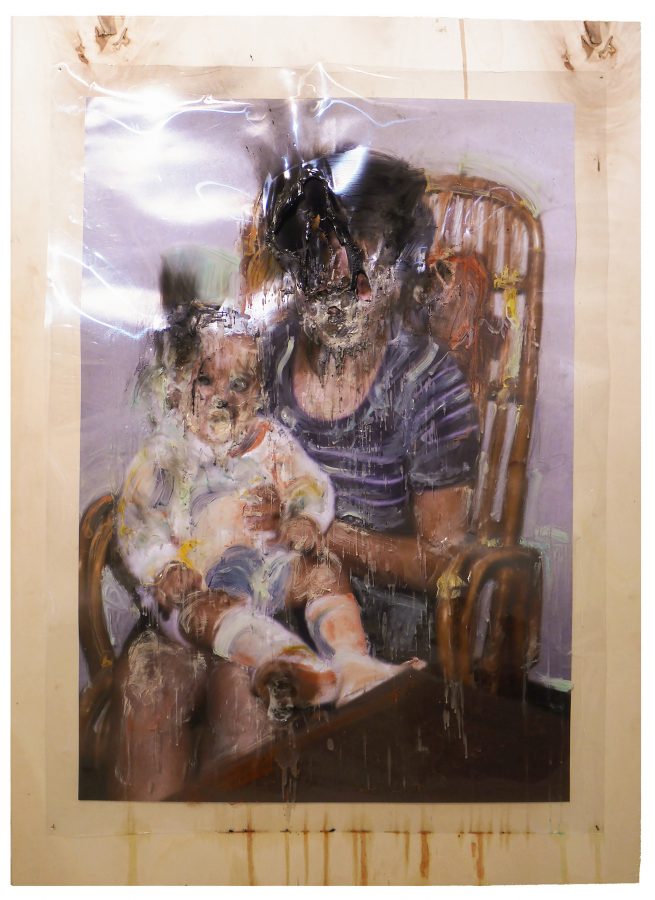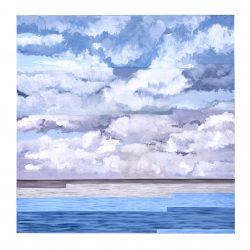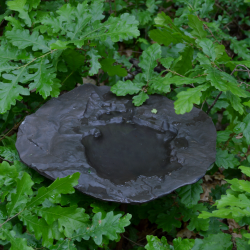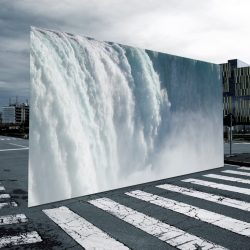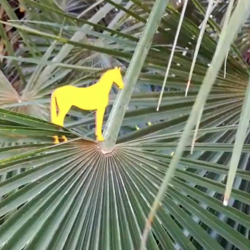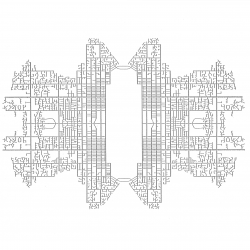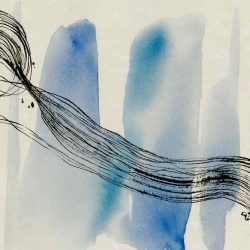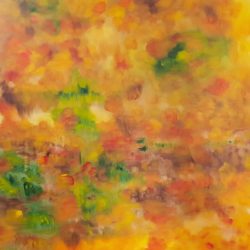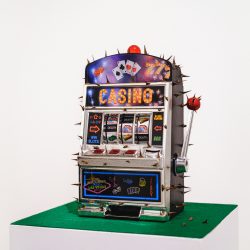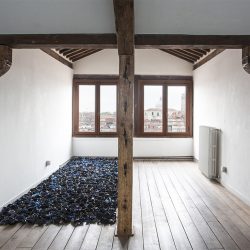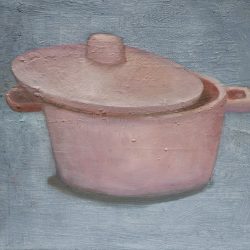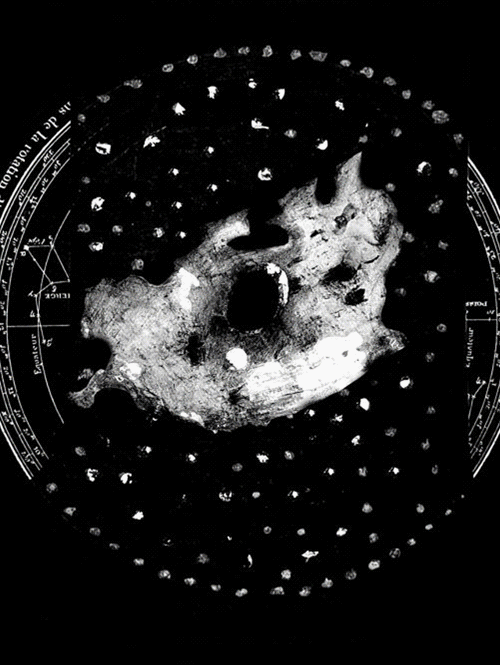work
Paper (Pagina Di Cenere) – Senza Titolo XVII
| category | Installation |
| subject | Abstract, Political / Social |
| tags | #painting #installation #conceptualart |
| base | 80 cm |
| height | 110 cm |
| depth | 0 cm |
| year | 2020 |
The work belongs to a cycle delineated over the last two years (corresponding to the transition from my three-year course in the academy in Verona to the two-year course, currently attended by me in Brera, called "Papers (Pagine Di Cenere)".
The series constitutes the landing (and restart) point for a broader investigation launched at the end of the three-year course in the academy, and which under this name brings together ephemeral testimonies of individual and private memory, which are subjected to stratification intermediate through the contribution of wax, combustion and oil pigment (which thus becomes its catalyst) as in the first acetate works.
An element, that of the transparency introduced by this material, which is expressed in a practice of de-personification and, consequently, the disappearance of the portrayed identities, of which only the fundamental features are imprinted on what becomes the fake of an object trouvé: matrix hosting a process of progressive backward retrieval of family memories handed down to me by my mother, and of which the memorial possibilities are exhausted with her birth, in this case particularly close (the photographic matrix from which the work is composed consists of a 1973, in which the interested subject is portrayed at the age of just one year, in the arms of my grandmother). This practice is carried out until its possibilities are exhausted, subjecting the same to a seal by depositing precipitating (dripping) of the wax on them, which form a crystallized shadow.
This negation thus assumes the value of a protective cover, (rap) presentation that must necessarily pass through the fragmentation and deflagration of the image conducted through the flame of a candle and supported by the tonal range, which through its own deconstruction gives new dignity the color intensity of the original document.
Furthermore, the process just described crystallizes in the creation of a double level of signification and origin of the basic photographic trace, poised between family (and therefore domestic) memory and the public and collective sphere, as apparently anonymous, to which the material printed on postcard and intended for postal shipments (which have now disappeared).
A projection therefore, indicative of the attempt (albeit in the awareness of how inevitable a failure is), to bring the two areas together, and to preserve the find from the dispersive action of time, making it become heritage belonging no longer to the single individual, but to the whole of humanity, on the basis of an artistic action close to the installation (and comparable to a form of writing that originates from its own ashes, rather than to a building based on rubble ).
What remains of the work constitutes a fragment, an anonymous, untitled bequest, belonging to a collective imagination, an area of which the need for re-appropriation is now more relevant than ever, and within which anyone who is led to look at himself, seeing legitimized the its uniqueness as it exists, albeit in a participatory and relational meaning.
Mixed media (oil, wax and combustion on acetate film superimposed on photographic print).
Single piece.
Bevilacqua La Masa Foundation.
The series constitutes the landing (and restart) point for a broader investigation launched at the end of the three-year course in the academy, and which under this name brings together ephemeral testimonies of individual and private memory, which are subjected to stratification intermediate through the contribution of wax, combustion and oil pigment (which thus becomes its catalyst) as in the first acetate works.
An element, that of the transparency introduced by this material, which is expressed in a practice of de-personification and, consequently, the disappearance of the portrayed identities, of which only the fundamental features are imprinted on what becomes the fake of an object trouvé: matrix hosting a process of progressive backward retrieval of family memories handed down to me by my mother, and of which the memorial possibilities are exhausted with her birth, in this case particularly close (the photographic matrix from which the work is composed consists of a 1973, in which the interested subject is portrayed at the age of just one year, in the arms of my grandmother). This practice is carried out until its possibilities are exhausted, subjecting the same to a seal by depositing precipitating (dripping) of the wax on them, which form a crystallized shadow.
This negation thus assumes the value of a protective cover, (rap) presentation that must necessarily pass through the fragmentation and deflagration of the image conducted through the flame of a candle and supported by the tonal range, which through its own deconstruction gives new dignity the color intensity of the original document.
Furthermore, the process just described crystallizes in the creation of a double level of signification and origin of the basic photographic trace, poised between family (and therefore domestic) memory and the public and collective sphere, as apparently anonymous, to which the material printed on postcard and intended for postal shipments (which have now disappeared).
A projection therefore, indicative of the attempt (albeit in the awareness of how inevitable a failure is), to bring the two areas together, and to preserve the find from the dispersive action of time, making it become heritage belonging no longer to the single individual, but to the whole of humanity, on the basis of an artistic action close to the installation (and comparable to a form of writing that originates from its own ashes, rather than to a building based on rubble ).
What remains of the work constitutes a fragment, an anonymous, untitled bequest, belonging to a collective imagination, an area of which the need for re-appropriation is now more relevant than ever, and within which anyone who is led to look at himself, seeing legitimized the its uniqueness as it exists, albeit in a participatory and relational meaning.
Mixed media (oil, wax and combustion on acetate film superimposed on photographic print).
Single piece.
Bevilacqua La Masa Foundation.



